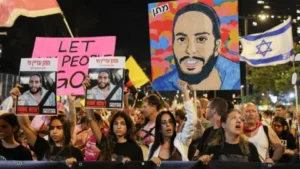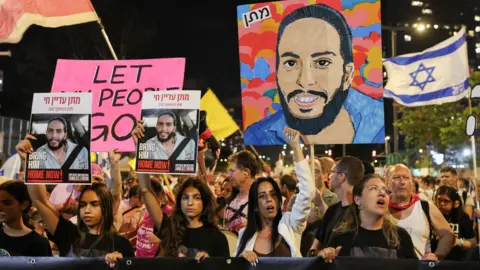In a significant move amidst rising tensions, Israel has decided to dispatch a delegation to Qatar for proximity talks with Hamas concerning a potential ceasefire and the release of hostages. Israeli Prime Minister Benjamin Netanyahu’s office confirmed that the decision to send negotiators was made despite allegations of unacceptable changes proposed by Hamas. These negotiations arise from a backdrop of ongoing conflict, with each side holding steadfast to its requirements.
On a recent Friday night, Hamas reported it had given a “positive response” on a proposed plan for a two-month ceasefire and expressed readiness to engage in negotiations. However, Palestinian officials later indicated that Hamas aimed to modify the proposal to include guarantees that hostilities would not resume if discussions regarding a permanent cessation of violence proved unsuccessful. Such intricacies underscore the complexity of reaching a consensus in the volatile landscape of Israeli-Palestinian relations.
Including the already grim situation in Gaza, Israeli forces have continued operations, leading to a rising death toll. Over the past 24 hours, the Hamas-run health ministry has reported that around 80 people lost their lives due to Israeli strikes. The bombing of tents in the al-Mawasi area resulted in casualties, including a doctor and his children. In a separate incident, two American workers from the Gaza Humanitarian Foundation (GHF)—an organization supported by Israeli and U.S. aid—were injured in a grenade attack attributed to Hamas, although the group has not issued a public comment regarding this accusation.
Despite these violent clashes, Israel’s Prime Minister’s Office announced that the alterations proposed by Hamas were deemed “unacceptable.” However, based on a situational assessment, Netanyahu has directed that the invitation for proximity talks be accepted, with the understanding that ongoing discussions regarding the return of Israeli hostages will also proceed based on a Qatari proposal that Israel had previously agreed to.
Negotiators are poised to find common ground in Doha; the U.S. is closely monitoring the atmosphere surrounding these discussions, with President Donald Trump expressing optimism regarding a possible agreement. Ahead of recent discussions, Trump characterized Hamas’s purportedly favorable response as a positive development.
Meanwhile, families of the hostages, alongside thousands of supporters, rallied in Tel Aviv demanding a comprehensive deal to secure the release of all kidnapped individuals. One poignant moment featured a family member, Yechiel Yehoud, expressing deep gratitude to President Trump for previously aiding in bringing back his daughter during an earlier ceasefire negotiation, which had ultimately collapsed amid renewed hostilities.
As intricate dialogue unfolds addressing hostages and ceasefire conditions, key proposals include a phased release of living hostages by Hamas while corresponding Palestinian prisoners would be freed from Israeli jails. The discussions bring to light the harsh realities faced by families still awaiting news of their loved ones, with an estimation indicating that among the approximately fifty individuals detained in Gaza, at least twenty are believed to still be alive.
Amidst these negotiations, the humanitarian catastrophe in Gaza remains severe. Conditions continue to deteriorate, with plans including significant humanitarian aid distribution that would require involvement from the United Nations and the International Committee of the Red Cross. Yet, Hamas seeks to ensure that all aid is exclusively administered by the UN, calling for a halt to the activities of the GHF, exhibiting their apprehension regarding the ongoing conflict.
The tension continues to intensify, as noted by far-right members within the Israeli cabinet who reject potential compromises. National Security Minister Itamar Ben-Gvir asserted that a complete resolution necessitates a full takeover of the Gaza Strip, indicating a perceived lack of trust in negotiations, and proposing stringent measures regarding humanitarian efforts and the Palestinian population.
The backdrop of the conflict stems from the October 2023 attack that escalated military operations, resulting in an extensive loss of life, as reported by Hamas-run health authorities, indicating upwards of 57,000 casualties in Gaza. This conflict, marked by deep-seated grievances and calls for justice, has left an indelible mark on both Israeli and Palestinian communities, emphasizing the urgent need for a resolution that prioritizes human lives over political standing.











